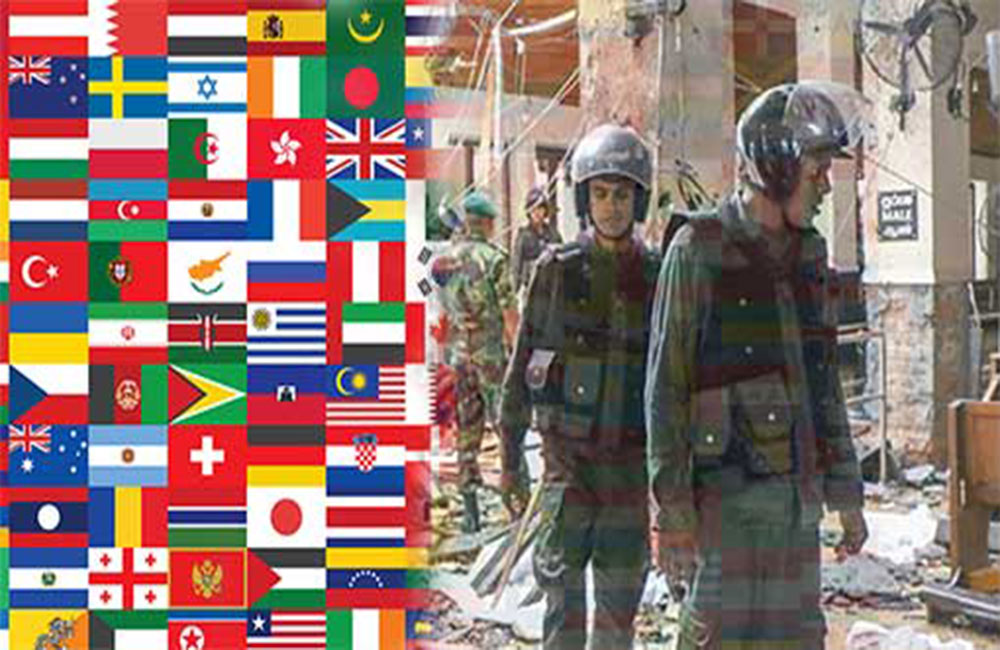The statement issued by the Foreign Ministry yesterday (20) indicates a head-on clash between the government of Sri Lanka and the international community.
The Foreign Ministry called on foreign entities not to interfere in a sovereign decision taken by the Head of State when appointing a new Army Commander.
Issuing a statement, the Ministry noted that the appointment of the Army Commander of Sri Lanka is a sovereign decision by the Head of State.
“Foreign entities trying to influence the decisions and internal administrative processes of public service promotions in Sri Lanka is unwarranted and unacceptable,” the Foreign Ministry stated.
Referring to the concerns raised by certain bilateral partners and international organisations on the appointment of a new Army Commander based on allegations, the Ministry stated that it is regrettable and contrary to the principles of natural justice espoused by all responsible members of the international community.
The United States (US), Canada, European Union (EU) and the UN High Commissioner for Human Rights have raised deep concerns over the appointment of Lieutenant-General Shavendra Silva as the Army Commander in Sri Lanka despite credible allegations of gross human rights violations against him during the war.
Lieutenant-General Silva commanded Sri Lanka’s 58th Division of the Sri Lanka Army during the final stages of the war in 2009, and successive UN investigations have implicated his division in alleged serious violations of international humanitarian and human rights law.
Implications on security cooperation
The Easter Sunday attacks on April 21 once again forcefully brought to the fore the necessity for cooperation among security and intelligence agencies, both nationally and internationally.
Soon after the attacks, sleuths from the Federal Bureau of Investigation (FBI) and the Scotland Yard arrived in Sri Lanka in order to support investigations launched by Sri Lankan authorities. Reports also said that a few officials from intelligence agencies including Mossad, also arrived to help the armed forces with their investigations. It was intelligence passed on from foreign agencies that warned Sri Lanka of an impending attack on Easter Sunday.
The transnational nature of several terrorist organizations, ISIS being the most notorious, implies that their detection, disruption, and elimination can succeed fully only if done globally.
Furthermore, the transnational nature of security threats makes isolation an impossible option. While international cooperation has to be entertained, its benefits must be weighed against the costs and risks. However, for a country like Sri Lanka, the transnational nature of security threats makes isolation an impossible option, security experts warned.

Leave your comments
Login to post a comment
Post comment as a guest